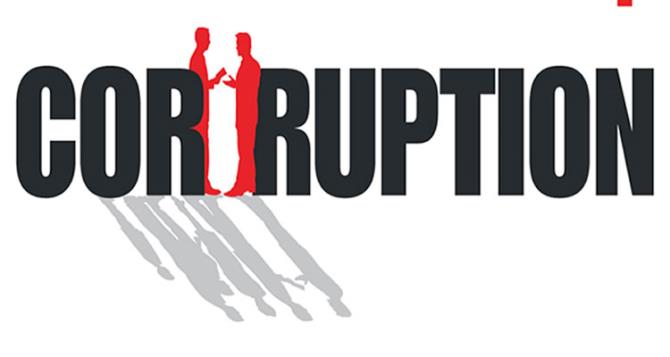Transparency International ranked Nigeria as the 136th corrupt nation among the 175 countries it carried Corruption Perceptions Index reports on in 2016.
The Corruption Perceptions Index shows how corrupt public servants are in the selected countries.
Prior to the Corruption Perceptions Index, precisely in 2012, Nigeria was estimated to have lost more than 400 billion dollars to corruption since independence while most Nigerians agree that corruption has become a major impediment to development.
Economists observe that although the government has tried to contain corruption through the enactment of laws and the enforcement of integrity systems, little success has been achieved in anti-graft crusade.
However, one of the most recent attempts by Federal Government at containing corruption is the plan to establish the Beneficial Ownership Register.
Beneficial Ownership Register is aimed at putting a stop to individuals using illegal business entities to circumvent due process and for money-laundering purposes.
Explaining the objectives of the programme, the Minister of Justice, Mr Abubakar Malami, said setting up the registry would ensure that owners of companies bidding for government contracts were known.
At a national consultation workshop on Beneficial Ownership in Abuja recently, the minister said that opening the register was one of the commitments Nigeria made at the London Anti-Corruption Summit in May 2016.
“Nigeria made a commitment to establish a public central register of company beneficial ownership information.
“It is also committed to ensure transparency of the ownership and control of all companies involved in property purchase and public contracting.
“Nigeria is already collating some of this information through the Extractive Industry initiative process and will extend it to the other sectors,’’ he said.
He explained that Beneficial Ownership Register was important to Nigeria because complex ownership of corporate entities made it difficult for authorities to determine which companies did what business in various jurisdictions.
He said the World Bank believed that corrupt politicians used secret companies to obscure their identities in 70 per cent of more than 200 cases of corruption.
“For example, investigations into the alleged bribery among leaders of the Federation of International Football Association (FIFA) revealed how complex networks of companies were deliberately created to obscure the details of ultimate beneficiaries.
“In many jurisdictions, nominee directors or shareholders are used as a conduit to obscure the true identity of the ultimate beneficiary and this process may, in fact, be legitimate.
“Obscurity over who is the ultimate beneficial owner of a company can militate against the ability of banks and other financial institutions to conduct effective checks with the attendant consequence that these institutions become unwitting conduits for the perpetuation of financial crimes and corruption,’’ he said.
He also observed that companies were often registered for the purpose of circumventing due process and for money-laundering.
“For instance, research conducted by the Financial Action Task Force (FATF) on corporate vehicles has shown that some business entities exist solely on paper without the requisite obligation to list the real people who actually own or control them.
“In the extractive industry, for example, these business entities are used to hold extractive rights and provide a channel for transferring extracted resources out of the host countries without paying specified royalties and taxes.
“These practices also allow the beneficial owners to avoid responsibility for violation of laws and regulations on labour and tax,’’ he noted.
According to the minister, the government is determined to implement the legal basis on which beneficial ownership is founded from both international and national perspectives.
He noted that in 2016, Nigeria was admitted into the Open Government Partnership (OGP) following Nigeria’s commitment to its principles on transparency, accountability and citizen participation.
One of the commitments under the Nigeria’s OGP National Action Plan is the need to establish transparency of beneficial owners of businesses.
Observers note that this commitment underscores the determination of Nigeria to fight corruption by ensuring transparency and accountability in the conduct of government business.
Further to this, in the provisions of Companies and Allied Matters Act, Laws of the Federation of Nigeria, 2004, companies are required to disclose beneficial interest in shares.
Concerned citizens, therefore, insist that since President Muhammadu Buhari has made the fight against corruption a priority to foster economic development in Nigeria, all anti-graft instruments of the government should be used to fight it.
They also commend the courage of Buhari in the London Anti-Corruption Summit where he made commitments to strengthen the capacity of institutions to combat corruption and improve the legal framework on beneficial ownership principles.
They believe that the commitments are borne out of the awareness that the lack of transparency in the business environment provides opportunity for corruption to thrive.(NANFeatures)

